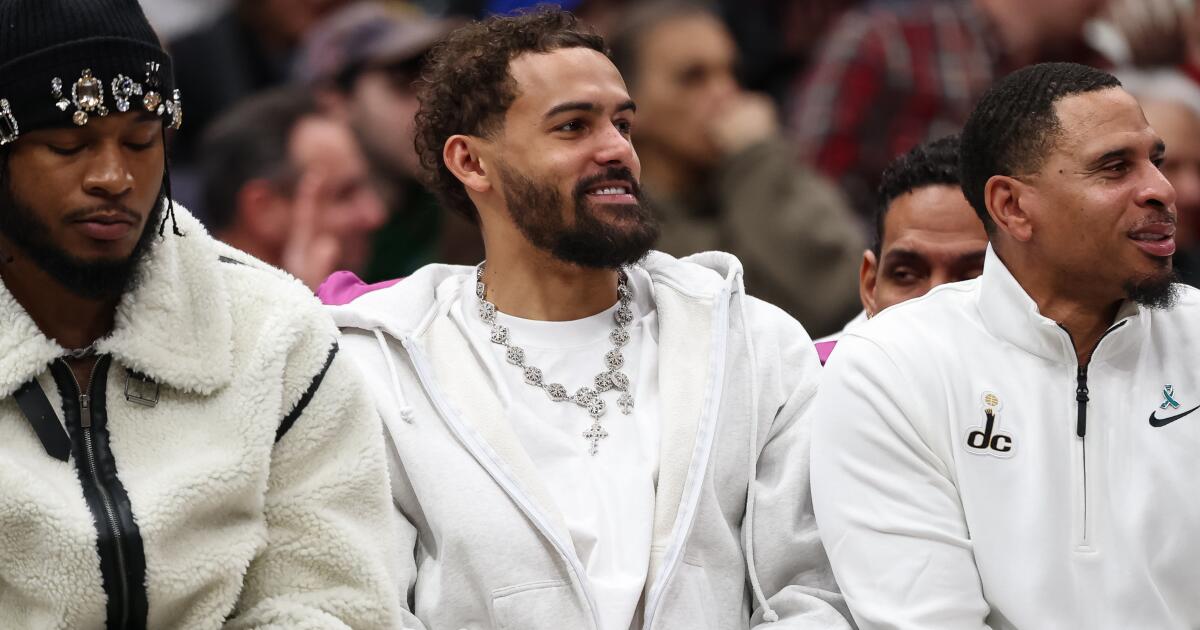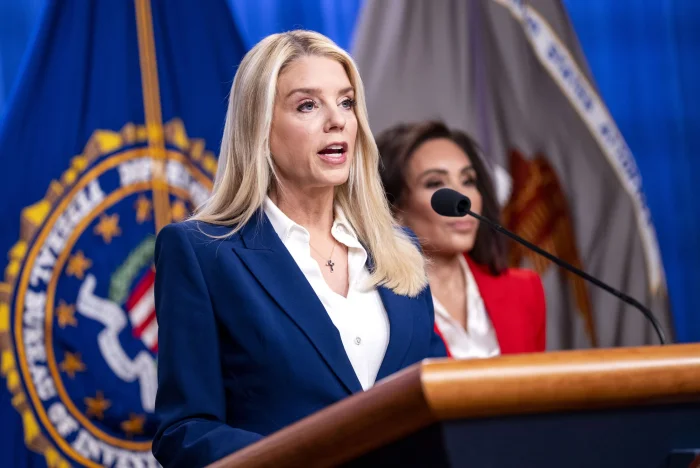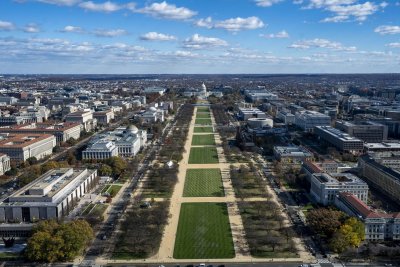Wizards’ Trae Young ejected from bench days before expected D.C. debut
Trae Young has yet to play a game for the Washington Wizards.
The four-time All Star has, however, already been ejected from a game as a member of the team.
That happened Monday night, three days before Young’s expected debut for the team that acquired him in a trade with the Atlanta Hawks on Jan. 7. He has not played in an NBA game since Dec. 27 because of knee and quadriceps injuries.
Earlier on Monday, Young posted a video on Instagram that showed him in Wizards gear and ended with “3/5” on the screen, indicating the date Washington hosts the Utah Jazz later this week. Before his team’s game against the Houston Rockets on Monday night, Wizards coach Brian Keefe said Young was trending toward being able to play in the Utah game.
Still, Young was in street clothes and watching the Rockets-Wizards game on the bench at Capital One Arena. During the third quarter, Houston’s Tari Eason shoved Washington’s Jamir Watkins to the floor, an incident that did not draw a whistle from the referees.
A few seconds later, after a foul was called on Eason for a different incident involving Watkins, Young stepped onto the court while yelling at referee Jacyn Goble apparently over the previous no-call against Eason. Goble called a technical foul on Young, then spoke with crew chief Tony Brothers and umpire Marat Kogut.
Brothers then announced that the technical foul had been called on Young for running onto the court and that Young had been ejected from the game. Eason also was ejected.
Young gave high fives to fans as he left toward the locker room. He did not speak to reporters after the Wizards’ 123-118 loss but joked about his ejection on X.
“Don’t expect me to get ejected too many more times D.C.,” Young wrote, adding a crying-with-laughter emoji, “but I’m definitely bringing that energy & competitiveness when I’m back for my brothers!”
After the game, Keefe praised Young for having his fellow player’s back.
“I think he was just sticking up for his teammates, which I thought was great,” Keefe told reporters. “Obviously, the refs missed a call in which our guy got knocked down, and I loved how our teammates stuck with him. So, whatever happened in that moment, I was actually proud of him because he stuck up for his teammates and I really care about that type of stuff.”
Keefe added that it’s an example of the type of engagement Young has shown since he’s joined the team.
“It’s nothing that he’s not been doing the whole time since he’s been here,” Keefe said. “He’s talking to everybody in every timeout. He sees so much. He has so much stuff to share. He’s completely engaged in the whole game. So I am not surprised that he stood up [for] his teammates. That’s the type of guy he is, and we’re lucky to have him.”




